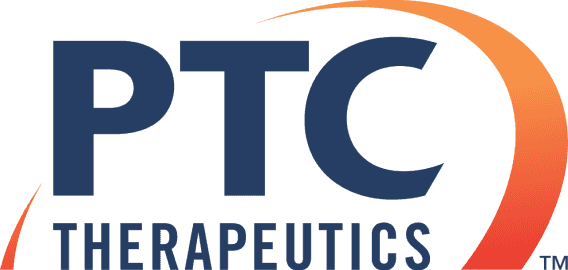
Get Ready to Imagine
A NEW WORLD
With PKU
With 25 years of expertise in rare diseases, PTC Therapeutics is proud to support the PKU community. We understand the challenges of managing PKU and are committed to reimagining the future of care.
Sign up for updates and take a brief survey to share your PKU experiences.
Join the
conversation
Sign up today to be among the first to receive updates from PTC Therapeutics about the future of PKU management. We look forward to working closely with you and joining your extended team.
All fields are required.

Rethink the Challenges,
Redefine the Possibilities
From early diagnosis to lifelong management, PKU demands more than diet alone.
Reimagine new ways to navigate challenges and open the door to greater possibilities at every stage of life
Early detection, lifelong management: Keep Phe in check1,2
The American College of Medical Genetics (ACMG) now strongly recommends maintaining Phe ≤360 μmol/L for life, emphasizing its link to higher IQ and advising that Phe levels be reduced as close to normal as possible.2
The impact of untreated or inadequately managed PKU at different life stages:
Childhood:
Irreversibly impaired brain development.3,4Adulthood:
Severe behavioral or psychiatric problems.4Pregnancy (Women with PKU):
Impaired fetal growth and development.3,5
Even patients who start dietary management early are at risk6
Children may face academic struggles, attention deficit hyperactivity disorder (ADHD), and impaired bone formation. Adults may experience mood disorders, social challenges, and low bone density.6,7
Due to adherence challenges, dietary Phe restriction may not be enough2
The ACMG acknowledges the need for new therapeutic options beyond diet. With more investigational treatments for PKU being developed, monitoring remains critical, with blood Phe as the gold standard for tracking treatment effectiveness.2

Stay informed with the most up‑to‑date 2023 ACMG guidelines on PKU management.

The Role of Diet in Patient Outcomes
Managing PKU through diet alone presents significant challenges, including social isolation, emotional stress, and barriers to adherence due to the complexity of dietary restrictions. Experts highlight the life-altering impact of achieving diet normalization, which offers freedom, improves quality of life, and reduces dependency on medical formula.8-10
The testimonials in these videos reflect the speakers' expert opinions, professional insights, and clinical experience. The speakers have been compensated for their participation.
Hear experts discuss the limitations of dietary management and the need for new approaches in PKU care.
Listen to leading experts discuss how diet normalization can transform the daily lives of patients with PKU.
Healthcare Professionals, we need your input!
We value your experiences and insights. Please take a few minutes to complete our survey, which will help us better understand the challenges and successes of managing PKU.
PTC Reimagines PKU
At PTC Therapeutics, we understand the unique challenges of managing PKU, especially given the lack of significant advancements in treatment over the past six years. We're committed to developing innovative solutions to support you better, aiming for a future where individuals can live more freely with PKU.

We Want to Hear From You
Sign up to stay connected with PTC Therapeutics and receive the latest updates on treatment advancements and innovations for PKU.
Stay ConnectedSupport for Managing PKU
Help patients navigate the challenges of PKU with trusted organizations and resources designed to improve care and outcomes.
National PKU Alliance
Find resources for individuals with PKU and their families. Explore their comprehensive guides and support programs designed to assist with the unique challenges of PKU.
flok
flok supports those living with PKU and their caregivers by providing an app for daily PKU management, educational resources, community connections, and the opportunity to drive research through daily care. Care and Research, Together. That's flok.
National Organization for Rare Disorders (NORD)
NORD offers the latest information about PKU research and care, as well as financial assistance for patients and resources to connect with the rare disease community.
Global Genes
Global Genes provides information, resources, and connections to communities affected by rare diseases.

It's time to reimagine the future of PKU! Stay informed, get inspired, and embrace the advancements transforming PKU management.

